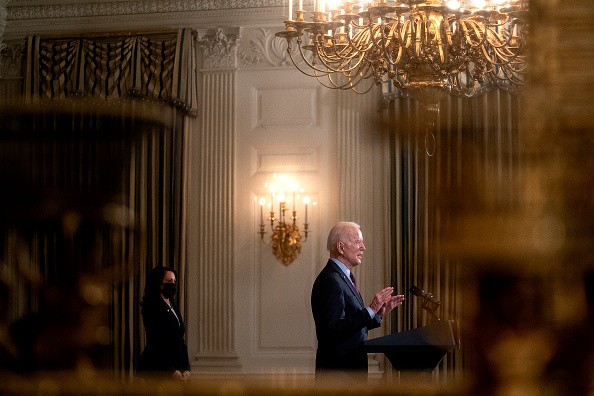
President Joe Biden confirmed plans to end US support for "offensive operations" by Saudi Arabia in war-torn Yemen, including the termination of related weapons sales to Riyadh's government.
The step has reflected a distinct change in Washington's approach to the conflict and a renewed focus to find a diplomatic solution to the very long war that has caused the worst humanitarian crisis in the world, as identified by the United Nations.
But the Biden administration has released few specifics details after the announcement about Thursday was made. These are the details on what help it aims to end for Saudi Arabia-led coalition forces in Yemen or how it can distinguish it from other US aid and weapons sales to Saudi Arabia.
"The United States provides spare parts, munitions, technical assistance, all kinds of things to the Saudi military, which enable its offensive operations," Bruce Riedel said, who is a senior fellow in the Brookings Institution on his interview with Aljazeera.
READ : Biden Announces US Will No Longer Be Involved in the Saudi-Yemen Conflict, To Pull Out US Support
Last March 2015, just after Saudi Arabia and the United Arab Emirates (UAE) launched a military offensive in support of President Abd-Rabbu Mansour Hadi, who was overthrown by the Houthi rebels, the US began to provide logistical and intelligence support' to the Saudi Arabia-led coalition in Yemen.
The support included establishing a joint U.S.-Saudi "planning cell" to coordinate military and intelligence assistance, technical support for US aircraft purchased, and Saudi aircraft in-air refueling.
The fierce fighting, the blockade imposed by Riyadh, and the Saudi airstrikes have levied a bloody toll on Yemenis, killing thousands of civilians and driving 13.5 million people to the brink of hunger in a humanitarian catastrophe. Both the coalition led by Saudi Arabia and the Houthi rebels have been charged with committing war crimes.
But since the war started, according to the Stockholm International Peace Research Institute, Saudi Arabia has remained the world's largest importer of US weapons, with significant imports increasing by 130 percent from 2015 to 2019, compared to the previous five-year period.
ALSO READ : Biden Does Not Want Trump To Receive Intelligence Briefings, Claims He Might 'Slip and Say Something'
Biden and the ending of US support in Saudi Arabia in war with Yemen
Biden's move is a hard pivot supporting Yemen's Saudi-led coalition that started under President Barack Obama, his former boss and grew under President Donald Trump, his immediate predecessor.
In 2015, as Riyadh vigorously resisted a Dutch-led campaign for a human rights investigation in Yemen, the Obama administration was mostly quiet. The US also did not step up when Riyadh allegedly threatened to withhold UN support if the organization did not exclude it from a list of children's rights violators for Yemen's 2016 actions.
At the end of his tenure, after a Saudi air raid on a funeral in Sanaa killed 140 people in October 2016, the Obama administration briefly paused some arms deals with Riyadh.
Pending Trump-era weapons sales to the UAE and Saudi Arabia, the Biden administration has already halted, calling the change a "typical" re-evaluation by a new administration. However, according to the announcement, two pending deals for GBU-39 Small Diameter Bombs and precision-guided missiles are likely to be terminated.
Other arms deals are likely to be part of' an ongoing negotiation' as the US is working for a broader diplomatic initiative to end the Yemeni conflict, Joshua Landis the director for Center for Middle East Studies at the University of Oklahoma said.








